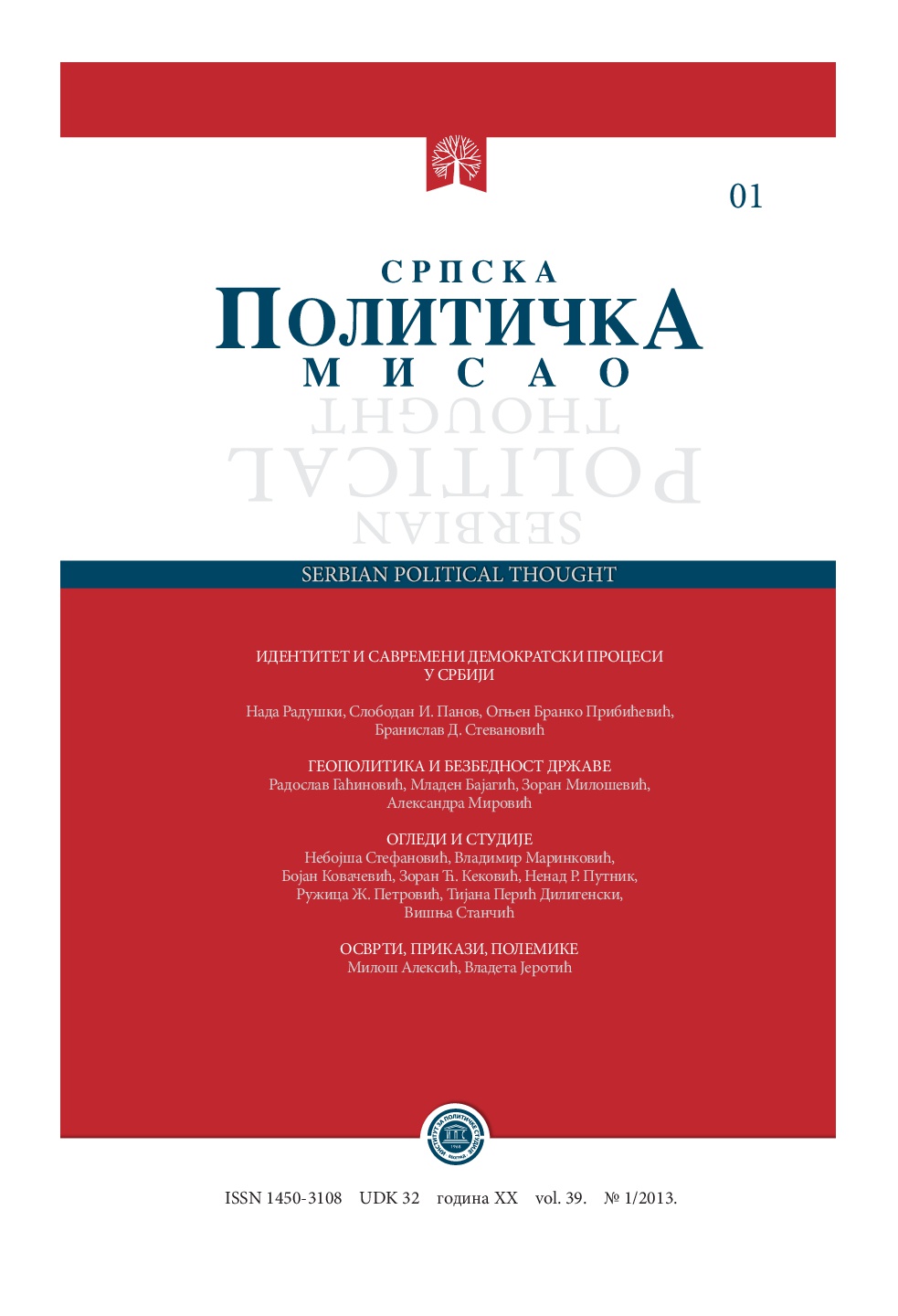Тегобна транзиција у Србији
Difficult Transition in Serbia
Author(s): Ognjen PribićevićSubject(s): Government/Political systems, Electoral systems, Politics and society, Transformation Period (1990 - 2010), Present Times (2010 - today), EU-Approach / EU-Accession / EU-Development
Published by: Институт за политичке студије
Keywords: Serbia; Kosovo and Metohia; parliament; democracy; opposition;
Summary/Abstract: In this article Dr Pribicevic analyzes reasons for difficult and slow transition in Serbia. Twelve years after the breaking down of authoritarian regime the Serbian population is completely disappointed. New authorities was promising higher standard, lower unemployment, quicker enter in to the EU, tough fight with corruption and organized crime. When it didn’t happen even after the ten years big expectations were changed with disappointment and dissatisfaction directed against the parties which ruled the country after the 2000. On the elections hold in May 2012 Democratic party and its leader Boris Tadic lost elections and new government was created by Serbian Progressive Party, Socialist party of Serbia and United Regions of Serbia. Three main political reasons caused difficult and slow transition in Serbia. First, complete preoccupation with Kosovo problem and constant conditioning of Serbian European road with so called normalization of relations between Belgrade and Pristina slower down reforms and dealing with all other problems in society, Second, constant conflicts between so- called democratic parties which ran Serbia after 2000 and Third, slow transformation of the parties which ruled the Serbia during the 90’ produced situation in which ruling parties after 2000 didn’t have normal incentive and corrective coming from opposition. Only after the Serbian Progressive Party, created after the split of extreme nationalistic Serbian Radical Party, adopted main postulates of democracy and main elements of Tadic’s foreign policy, first real change occurred in Serbia, twelve years after the breaking down of previous authoritarian regime. Quicker approach to EU and solvation of Kosovo issue remains the main challenge for the new government. Better life of Serbian citizens is mainly related to the solvation of these issues.
Journal: Српска политичка мисао
- Issue Year: 2013
- Issue No: 1
- Page Range: 57-75
- Page Count: 19
- Language: Serbian

